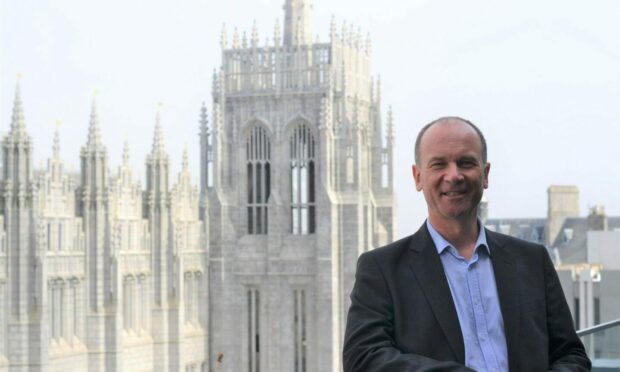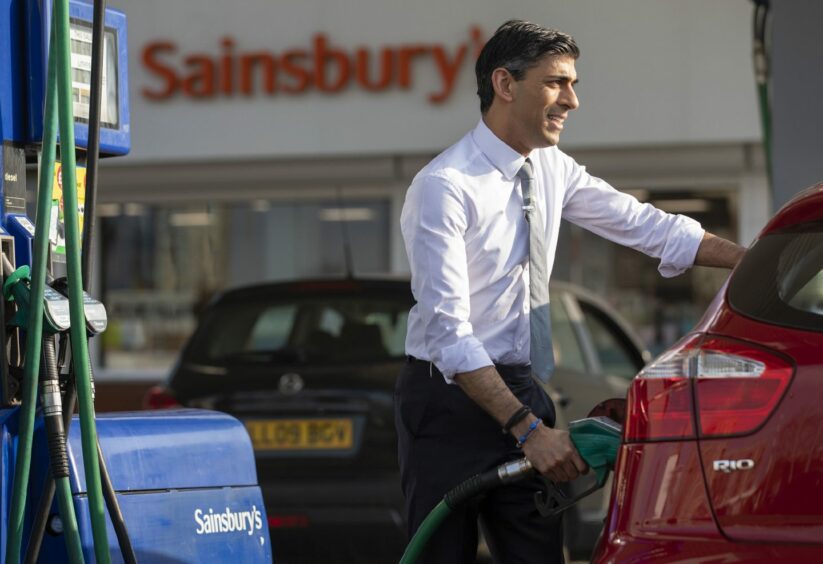A windfall tax on energy profits will send the wrong signal to investors but looks increasingly inevitable, according to a senior partner at KPMG in Aberdeen.
Speaking at a meeting of the Aberdeen and Grampian Chamber of Commerce (AGCC) on Wednesday morning office senior partner of KPMG UK in Aberdeen, Martin Findlay, said the proposed levy “doesn’t exactly scream out that we’re a country of fiscal certainty.”
Calls for a windfall tax on oil, gas and electricity profits have only grown in recent months and while the Prime Minister and Chancellor have repeatedly rejected the idea, a U-turn now appears imminent.
Reports on Wednesday suggest plans are expected to be brought forward and announced “as soon as Thursday”, with commentators suggesting Rishi Sunak has now concluded that the levy is justified, given the surge in energy earnings.
So much was affirmed by Mr Findlay, who said: “We are going to have a windfall tax – that is my prediction. On June 8th there will be an emergency Budget and there will be an emergency tax.
“It won’t just apply to oil and gas, it will apply to electricity generators and that is the direction of travel…and we’ll just have to suck it up I’m afraid.”
However, he said the decision was “fundamentally wrong” and sends out “entirely the wrong message,” adding that the industry should keep advocating its position in the coming weeks.
Mr Findlay said the move would not help the UK’s image as an investment destination with “fiscal certainty” where commercial profits are taxed fairly and in a transparent manner, and questioned the signals it would give to potential investors.
We don’t need a windfall tax to provide targeted assistance to those who need the state to help them through the cost of living crisis
Martin Findlay, office senior partner, KPMG
Reports of a change in government tack come as Ofgem announced this week that typical energy bills are set to rise to £2,800 a year – an increase of £800 from October – causing millions of people to be plunged into fuel poverty.
But Mr Findlay contended that the measure was not the most appropriate method of supporting those affected by energy price rises.
“We don’t need a windfall tax to provide targeted assistance to those who need the state to help them through the cost of living crisis,” he added.
“We must help people in need – we’re a rich country. But the politics of linking assisting people in need to what is effectively a raid on commercial profits which are already being taxed – that’s just political expediency of the worst kind.”
The AGCC, which has long campaigned against the levy, wrote to Rishi Sunak once again this week urging him to resist calls to do so.
It comes on the back of an AGCC and KPMG survey which said north east firms are on track to diversify away from oil gas production but face a “test” on how firmly they “keep the pedal pressed to the floor on the journey to net-zero”.
In his letter, AGCC chief executive Russell Borthwick said: “Ultimately this is a matter of whether you want a successful energy transition or not.”
That message was echoed by industry leaders and trade body Offshore Energies UK during the group’s annual conference on Tuesday, in which Harbour Energy chief executive Linda Cook said the decision “will have consequences” for future investment in the North Sea.



Conversation